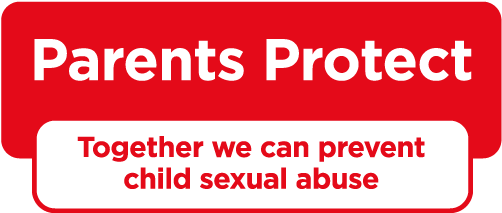What to look for in adults and children
Because child sexual abuse is so difficult to think about, some people find it easier to deny that there is a problem.
Parents in this situation might think, 'My child would have told me if they were being abused and they haven't – so it can't be happening'.
People who sexually abuse children rely on privacy and secrecy to make sure their abuse isn’t discovered and reported. But, even when a child hasn’t said anything, there can be physical or behavioural signs that a child is being abused – children will often show us rather than tell us that something is upsetting them.
Watch the short film below to learn about the warning signs of sexual abuse in children and how to respond to them.
WARNING SIGNS IN CHILDREN
Changes in a child’s behaviour that need our attention can include:
- The child acting in a sexual way with toys or object
- Suddenly having nightmares or other sleeping problems
- Becoming withdrawn or very clingy
- Personality changes or suddenly seeming insecure
- Regressing to younger behaviours, such as bedwetting
- Unaccountable fear of particular places or people
- Outbursts of anger
- Changes in eating habits
- Physical signs, such as unexplained soreness or bruises around private parts
- Becoming secretive
- Having unexplained gifts such as toys, money, mobile phone, expensive clothes.
- Pain, discoloration, bleeding or discharges in genitals, anus or mouth
- Persistent or recurring pain during urination and bowel movements
- Wetting and soiling accidents unrelated to toilet training
There can be many reasons for these behaviours and changes, but it is best we check them all out; and if we notice a combination of these signs, it’s time to seek help and advice.
By limiting the opportunities that others have to get a child on their own, and if we watch for the warning signs and respond appropriately, we can prevent abuse from happening in the first place.
Keep in mind that some of these signs can emerge at other times of stress such as:
- During a divorce
- Death of a family member or pet
- Problems at school or with friends
- Other anxiety-inducing or traumatic events
RECOGNISING THE WARNING SIGNS IN ADULTS
People who sexually abuse children are difficult to spot in a crowd - but you can look for the warning signs in their behaviour. Watch the film below to learn what signs to look for and how to respond.
These warning signs are not always obvious. But there may be cause for concern about the behaviour of an adult or other young person if they:
- Refuse to allow a child enough privacy or to make their own decisions about personal matters
- Insist on physical affection, such as kissing, hugging, wrestling or tickling even when the child does not want it
- Are overly interested in the sexual development of a child or teenager
- Discuss or share sexual jokes or sexual material with a child or young person, online or offline
- Insist on time alone with a child, with no interruptions
- Spend most of their spare time with children and have little interest in spending time with people their own age
- Regularly offer to babysit children for free or take children on overnight outings alone
- Buy children expensive gifts or give them money for no apparent reason
- Frequently walk in on children or teenagers in the bathroom
- Treat a particular child as a favourite, making them feel ‘special’ compared with others in the family
- Pick on a particular child
One of these signs doesn’t necessarily mean that the person is a sexual risk or that abuse is happening. But all should be taken seriously; and a number of these signs in combination should get our urgent attention.

